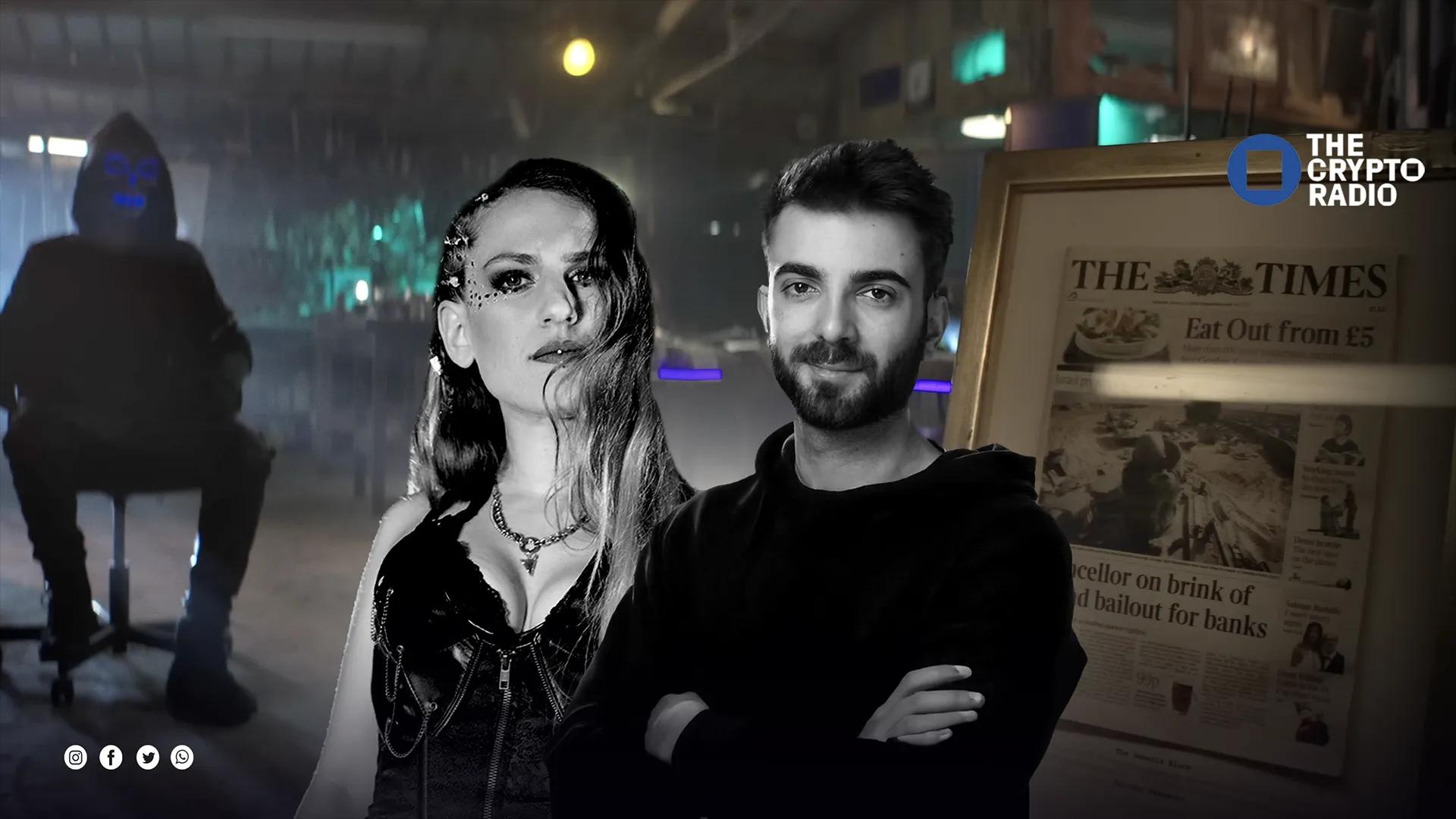Scardust calls Bitcoin a ‘lifeline’ for musicians
'How can you price someone’s time?' asks lead singer Noa Gruman, reflecting on how it supports artists’ financial survival

Scardust has always defied labels, fusing metal, jazz, and Middle Eastern sounds. Now, they’re fusing music and Bitcoin to challenge the economic chains on artists – and yes, they’ll even serenade you with a song about the importance of consuming “40 hours" of Bitcoin podcasts a week.
For Noa Gruman, lead vocalist of the progressive metal band, Bitcoin isn't just a digital currency – it's a lifeline for creative professionals.
Escaping the nine-to-five with Bitcoin
"Bitcoin, to me, means freedom," Gruman told The Crypto Radio at Bitcoin FilmFest.
"I never related to this nine-to-five concept because I've always seen myself as an artist," she said. For her, traditional work structures often crush creativity, forcing musicians to spend countless unpaid hours writing, practicing, and perfecting their craft without financial recognition.
"Sometimes I work and get paid when I do a gig or teach, but sometimes I don't get paid," Gruman explained. "When I write a song, nobody pays me for that. When I practice my vocals, nobody pays me for that. But it's still a part of my work." She added, “How can you put a price on someone’s time? Like this is a concept I never understood.”
Gruman described how many of her peers are stuck in exhausting day jobs. "They finish their work day at 8 or 9 pm, exhausted. They have to rest during weekends... some are the greatest artists I've ever met, but they cannot put any time into their art."
Progressive metal meets progressive money
Scardust’s approach to Bitcoin mirrors their musical philosophy – progressive, boundary-pushing, and complex. "Progressive metal really means you're allowed to do a very wide range of styles," Gruman said. "We have Disney vibes in our music, death metal vibes, oriental instruments, jazzy songs, and rock and roll stuff."
She added, "Bitcoin is like progressive metal – you're allowed to do a wide range of styles."
That same spirit shapes the way filmmaker Lahav Levi thinks about Bitcoin. He called it a "cheat code in life" that provides economic power and resilience, especially for artists navigating an unstable financial world. “When I understood it, it changed me,” Levi told The Crypto Radio. “It gave me hope. It gave me purpose and solutions.”
He emphasized its use as a savings technology – a way for creators to store value safely, outside the pressures of inflation or volatile currencies. “Some people want to spend their Bitcoin all the time, which is okay,” Levi said, “but as a savings technology, that’s a major use case.”
Satoshi’s legacy and artistic independence
One of Scardust’s boldest collaborations comes through the music video RIP, directed by Levi, which tells the story of Bitcoin’s mysterious creator, Satoshi Nakamoto. The video portrays Satoshi not just as a coder but as a painter, lock picker, and music lover – a multi-dimensional artist who deliberately vanished to protect what he built.
"He had to disappear in order for Bitcoin to exist," Levi explained. "If Satoshi would stay, he would become a huge target for trying to get influence over him. The fact that Bitcoin is truly decentralized, with rules without rulers, is why he had to leave."
The video avoids speculating about Satoshi’s identity, instead focusing on his emotional journey – including symbolic scenes like drilling hard drives, wearing skull masks, and walking toward the light.
Redefining the music industry with Bitcoin
Looking ahead, Scardust is preparing to release their album Souls on July 18, which continues to explore themes of liberation and personal growth. But they’re not just singing about change – they’re implementing it.
The band is actively working to accept Bitcoin for music sales and merchandise, hoping to bypass traditional gatekeepers and enable more direct artist-to-fan interactions. "It takes time to really understand it," Gruman said, comparing Bitcoin to learning an instrument. "Like learning every skill, diving really deep into your craft, understanding it to the core."
Gruman is more open to using Bitcoin directly as money, imagining a future where the band could live on a Bitcoin standard. “The world isn’t quite ready or set up for that yet,” she admitted, “but it’s something I’d love to see.”
For Levi, the focus remains on artistic sovereignty. “Bitcoin gives you the ability to be sovereign in your art,” he said, “and you can now make stuff that you really believe in, without depending on any entity.”
And as the conversation wrapped up, Gruman laughed and serenaded The Crypto Radio team with a playful tune about “40 hours of Bitcoin podcasts a week” – a humorous nod to the deep learning curve behind this revolutionary technology.
“Bitcoin allows you to have this huge range of possibilities in your life,” Gruman said. Or, as she put it with a smile, “We play epic, complex music – and we take ourselves way too seriously.”



